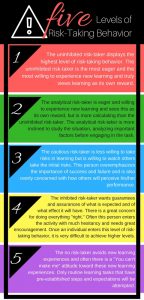If you could ask God one question, what would it be? “A USA Today poll found that if people could ask God just one question, most would want to know: ‘What’s my purpose in life?’  Periodically, we find ourselves questioning who we really are and what we are supposed to do in life. These thoughts may nudge us gently, or they may launch a season of upheaval in our lives. We may feel unsettled and restless, sensing that there are truths about ourselves to uncover and mysteries to unravel about why we are here on earth. We dare to believe that there is something special within us and that we do have a life mission to find and fulfill. We may not be sure how to discover this purpose but feel driven to do so. Although we may describe our quest as a search for our calling, we may not be entirely sure what it is that we seek.”[1]
Periodically, we find ourselves questioning who we really are and what we are supposed to do in life. These thoughts may nudge us gently, or they may launch a season of upheaval in our lives. We may feel unsettled and restless, sensing that there are truths about ourselves to uncover and mysteries to unravel about why we are here on earth. We dare to believe that there is something special within us and that we do have a life mission to find and fulfill. We may not be sure how to discover this purpose but feel driven to do so. Although we may describe our quest as a search for our calling, we may not be entirely sure what it is that we seek.”[1]
 While there are many people searching for their calling, there is great ambiguity surrounding the methodology for discerning one’s calling. “Google returned 3,530,000 hits for ‘career center’! Most institutions of higher education and large towns have a career center where people can learn about drafting resumes as well as search for jobs and interviewing tips. While these are essential and important skills for life, there’s a much more crucial concern looming in the minds of most people that seldom gets discussed: How do I discern my calling?”[2]
While there are many people searching for their calling, there is great ambiguity surrounding the methodology for discerning one’s calling. “Google returned 3,530,000 hits for ‘career center’! Most institutions of higher education and large towns have a career center where people can learn about drafting resumes as well as search for jobs and interviewing tips. While these are essential and important skills for life, there’s a much more crucial concern looming in the minds of most people that seldom gets discussed: How do I discern my calling?”[2]
What is a call?
A call is a summons from God to follow a particular instruction for God’s divine will to manifest and meet a great need.
What do people trying to answer their call suggest a call is?
The following are definitions or ideas about what a call is from those who are about to take a calling class at St. Stephens AME Church in Essex, Maryland.
What Does It Mean to Walk in Your Calling?
Answering the call means a person is following the instructions God has given so that God’s will may appear in their lives, the lives of the people connected to them, and the lives of the broad community to which they are attached.
A Closer Look: The Obstacles & Issues for Answering One’s Calling
The following three abilities are necessities to efficiently answer one’s calling:
- The ability to articulate what one has heard as a call from God for their life.
- The ability to say yes to God and understand what that yes initially requires of them.
- The ability to do what God’s instructions (summon or call) require with clarity and purpose despite the obstacles and objections.
The latter three abilities are aided with the following ideals which will be discussed in detail below:
- Listening Comprehension – The ability to describe what they noticed when they experienced God’s divine confrontation or introductory word. This description should lead to a clear understanding of their commission from God.
- Introspection – The ability to understand what may be an obstacle to obediently answering God’s call in your life.
- Taking Risks – The ability to do what God’s instructions (summon or call) require with clarity and purpose despite obstacles and objections.
Did You Hear Me? Understanding and Articulating What You Heard
Often people hear what God has said but their response suggests they haven’t heard or ultimately, comprehended what God has said. What does this sound like?
There is a temptation to distort what you have heard from God instead of embracing the exact words of God without addition or gloss.
The following is an excerpt that exemplifies some of the challenges one faces with clarity when they ignore the instructions they heard from God
There is a propensity of the called to filter the call of God through their experiences with things associated to what they hear from God. It is a necessity however to be led only by what God has said.
Listening Comprehension
It is hard for people to comprehend what they have never heard or experienced before. “As the child learns his native language, he comes to expect certain patterns of sound and not others. He is therefore disconcerted by the sound sequences of a foreign language until he has had sufficient experience with them to build up a frame of expectations.”[3] Similarly, people find themselves disconcerted by the sound sequences of God’s call until they have had sufficient experience with “the voice of God” to build up a frame of expectations. Too often people have not heard (felt or experienced) God talk to them as they do when they feel like they are being called. When this uncertainty is coupled with a spiritually undisciplined life (void of reading and studying Gods word, public and private worship, prayer, and a devotional life), deciphering God’s word and his call is difficult.
There is much to consider when one hears an unexpected and unfamiliar word from God. “As Weaver has put it, ‘the word information in communication theory relates not so much to what you do say, as to what you could say. That is, information is a measure of one’s freedom of choice when one selects a message.'”[4] The deciphering of God’s word – information – is the major problem in Calling comprehension. While people hear what God has said, they fear what the call could mean.
“In order to reduce any one sound sequence to manageable proportions, each language has developed a certain amount of redundancy. … It is redundancy in language which helps us to piece together the information we hear.”[5] Many people suggest they have not developed the ability to hear from God. God’s word, however, has redundancy to it that is supposed help one to comprehend his word better.
For the sake of Calling Comprehension, there are at least 20 call narratives in which one can ascertain what a call sounds like, the pattern of elements associated with a call, and the appropriate actions one should take. Dr. Norm Habel has proposed a widely accepted model of the call narrative in the Bible as a genre.[6] He believes the call narrative pattern consists of six elements:
1) The divine confrontation; 2) The introductory word; 3) The commission; 4) The objection; 5) The reassurance, and 6) The sign. Recognizing the variation of the latter six elements in ones call and how they played out in other call narratives should help a person to discern and confirm God’s actions, language, and summon. For one to appropriately comprehend what God is calling them to do, they must develop some level of fluency in God talk to answer their call.
Examining Yourself to Discern What Issues Create Your Objections
Listen: When asked “what does it look like to answer the call?” most people understand what that means and know what they should do but there is something in the way.
LIsten: What is keeping you from doing what you feel God is calling you to do?
Introspection
When dealing with something that is so subjective as the articulation of calling, which is heard and or felt by an individual in a private, inward way, introspection is necessary. “Introspection is a term used by philosophers to refer to a special method or means by which one comes to know their own mental states, specifically, one’s current conscious states. It derives from the Latin ‘spicere,’ meaning ‘look,’ and ‘intra,’ meaning ‘within’; introspection is a process of looking inward.”[7] Introspection allows the one being called to work through their thoughts, objections, and obstacles to understand what God is calling them to do and move to an affirmative response.
Despite many qualms about the usefulness or reliability of introspection, it is one of the only ways one can explore their calling. “How do people know that they have a certain experience? – I submit that the right answer to the question, ‘How do you know that you have a pain in your foot?’, is not, ‘I feel it,’ but rather, ‘I notice it.’ Having a pain is one thing; noticing it is another. By noticing our experiences, we come to know that we have them. Most of our experiences come and go without ever being noticed. But once noticed, an experience has entered the grip of cognition.”[8] When trying to comprehend one’s calling, there is a need to extract what they noticed when they were being called.
Every Instance in which we detect the fingerprints of God orchestrating and intervening, every time we hear the weighty whisper of the Holy Spirit echoing in our hearts, we ought to be quick to preserve those happenings so they cannot be easily forgotten.[9]
When Samuel noticed that someone was calling his name, he responded in the best way he knew at the moment.[10] From this articulation, Eli was able to help Samuel answer the call of God for that season of his life. The idea of introspection in calling comprehension mirrors what Eli was able to do for Samuel. People who are called must look inwardly to recall all that they noticed when they heard the call so that they may decipher what God may be saying.
Furthermore, Introspection will help a person consider why they may be missing the call of God, ignored every thing they noticed about the call, or find what they noticed about the call scary, uncomfortable, and too risky.
Objections
While considering the objections one may have made or is currently making to the call of God in their life, consider the role of Ananias in the conversion experience of Paul (Acts 9:10-17). Imagine yourself as Ananias in the Scripture. While Paul is, in one form or fashion, responsible for almost twenty percent of the content in our Bible and the sharing of the Gospel to the Gentiles, what if Ananias was stifled in his obedience because of his objections? Ananias had good reasons not to get anywhere close to Saul (Paul).[11] When you identify the obstacles and distractions that are keeping you from moving forward with what they hear God instructing, what could God be trying to do? Who is God trying to equip, minister to, and whom is God trying to save? Objections keep us from seeing what God wants to do.
Learning How to Take the Appropriate Risks
Fear is an immobilizer and catalyst for unresponsiveness and procrastination. When answering the call, there comes a moment when you just have to go for it despite all obstacles, objections, and fears.
Listen to what this may sound like:
Taking Risk
When trying to answer the call, there is always a level of uncertainty associated. Those wrestling with an understanding of their call, will eventually have to take a risk and trust God where information and definitive answers are unavailable. “Risk-taking is the willingness to venture into the unknown. It is an eagerness to try something new and different without putting the primary focus on success or failure.”[12]
“‘May I have two volunteers?’ I frequently asked this question of the children in my classroom. Each time almost every child was willing to volunteer. This question was also asked of the parents at the first parent meeting of the year. The results were always the same never did a parent volunteer. Only after a few questions such as ‘What will I be expected to do?’ and ‘What do you have in mind?’ were answered would someone agree to volunteer. The parents actually wanted answers to such questions as ‘Can I be successful?’ ‘Will I look foolish?’ and ‘Will I embarrass myself?’”
The children were eager to take a risk with no questions asked. The few parents who eventually agreed to volunteer needed guarantees that their self-esteem and integrity would not be threatened. The message of this activity is worrisome; somewhere between kindergarten and adulthood, we lose that eagerness, that willingness to take a risk simply for the sake of learning something new. This loss creates adults who lead safe, low-risk lives and, in addition, contributes to the large number of adults who no longer actively pursue learning.”[13]
When answering one’s call, there are no guarantees that one’s self-esteem and integrity will not be threatened. Unfortunately, because of the many adults who lead safe, low-risk lives, there is a large number of people in the Body of Christ who no longer actively pursue learning about their call.
In his research on risk taking behavior, Robert Young highlights five levels of risk-taking behavior. “It should be noted that these levels are not stages through which all individuals progress. Risk-taking behavior is not a developmental process in which an individual begins at the lowest level and proceeds through subsequent levels until the highest level is reached. The levels are not assigned an age-appropriate range; rather, the levels indicate the varying degrees of risk-taking behavior. It is possible that a young child will display the highest level of such behavior and continue in this way all through his/her life. However, it is more probable that the young child with a high level of risk-taking behavior gradually will regress to a lower level”[14]
The uninhibited risk-taker displays the highest level of risk-taking behavior. The uninhibited risk-taker is the most eager and the most willing to experience new learning and truly views learning as its own reward. The second highest level of risk-taking behavior is analytical risk-taking. The analytical risk-taker is eager and willing to experience new learning and sees this as its  own reward, but is more calculating than the uninhibited risk-taker. The analytical risk-taker is more inclined to study the situation, analyzing important factors before engaging in the task. The third level of risk-taking behavior is cautious risk-taking. The cautious risk-taker, though still interested and eager, is less willing to take risks in learning but is willing to watch others take the initial risks. This student overemphasizes the importance of success and failure and is also overly concerned with how others will perceive his/her performance. However, the cautious risk-taker secretly wants to be more uninhibited in learning. The fourth level of risk-taking behavior is inhibited risk-taking. The inhibited risk-taker wants guarantees and assurances of what is expected and of what effect it will have. There is a great concern for doing everything “right.” Often this person enters the activity with much hesitancy. Once an individual enters this level of risk-taking behavior, it is very difficult to achieve higher levels. The lowest level of risk-taking behavior is no risk-taking. At this level, The no risk-taker avoids new learning experiences and often there is a “You can’t make me” attitude toward these new learning experiences. Only routine learning tasks that have pre-established steps and expectations will be attempted. Like the inhibited risk-taker, this student’s learning behavior is very difficult to change.[15]
own reward, but is more calculating than the uninhibited risk-taker. The analytical risk-taker is more inclined to study the situation, analyzing important factors before engaging in the task. The third level of risk-taking behavior is cautious risk-taking. The cautious risk-taker, though still interested and eager, is less willing to take risks in learning but is willing to watch others take the initial risks. This student overemphasizes the importance of success and failure and is also overly concerned with how others will perceive his/her performance. However, the cautious risk-taker secretly wants to be more uninhibited in learning. The fourth level of risk-taking behavior is inhibited risk-taking. The inhibited risk-taker wants guarantees and assurances of what is expected and of what effect it will have. There is a great concern for doing everything “right.” Often this person enters the activity with much hesitancy. Once an individual enters this level of risk-taking behavior, it is very difficult to achieve higher levels. The lowest level of risk-taking behavior is no risk-taking. At this level, The no risk-taker avoids new learning experiences and often there is a “You can’t make me” attitude toward these new learning experiences. Only routine learning tasks that have pre-established steps and expectations will be attempted. Like the inhibited risk-taker, this student’s learning behavior is very difficult to change.[15]
These results speak to the urgency I possess to help people answer the call as early as possible in their life when their eagerness to risk is not downgraded. While the highest level of uninhibited risk-taking behavior may be a goal, the second level is more appropriate for those seeking to answer their call. There is an element of risk-taking behavior required to answer the call because there are plenty of unknowns.
A Calling Class
Listen to what a person seeking to answer their call says they would need from a calling class:
In Calling & Clarity: Discovering What God Wants for Your Life, Doug Koskela suggests that there are two questions or dilemmas that people ask or wish to resolve if they are seeking to answer the call of God:
- What is God calling us to and how we might live that calling out in particular situations?
- Will we be obedient to that calling?[16]
With these two questions in mind, a course of study was created to help people with their calling comprehension entitled: I Said, “Yes,?.!” Now What? The lessons learned from that class and ideas for helping one to discern and be obedient to the call of God in their lives are expressed in the following treatment for calling comprehension.
Calling Treatment: An Integrative Model for Calling Comprehension
If a person has comprehended their call, they understand what they have been summoned and commissioned by God to do and they talk and walk accordingly. Hopefully, the called will say yes to God’s call as Mary does: “Yes, I see it all now: I’m the Lord’s maid, ready to serve. Let it be with me just as you say.”[17] Moreover, their actions undergird their yes like Elisha who sacrificed his resources and former life to follow Elijah. Ultimately, Elisha said Yes to his prophetic calling to become Elijah’s successor not through word but by actions.[18]
The goal of calling comprehension seeks a threefold result:
- The called person should be able describe what they noticed when they experienced God’s divine confrontation or introductory word. This description should lead to a clear understanding of their commission from God.
- With clarity on their commission, the called person should obediently and willingly respond to God’s summons, understanding that God is not trying to hurt them but meet a need in a divine way.
- The called person should be able to do what God has instructed with confidence and endurance despite obstacles and objections.
Therefore, the process of Calling comprehension starts with an exact articulation of what God has communicated to an individual.
The First Task
The first task of helping one with calling comprehension is to help the called person articulate what they have heard or noticed when God invited them to follow a particular instruction. The called should be asked to write down what they heard – not what they think they heard, or what it means, or what it will require of them. This step will require listening comprehension and introspection strategies to help the called push past subjective fears, worries, and questions to the objective task of following the particular instructions of God. When seeking to answer and decipher their call, the person needs to habitually engage in the spiritual disciplines of reading, studying, and meditating on God’s word. To help people discover one’s calling in life, Marlis McCollum, argues that one has to deepen their spiritual life.[19] The revelations of these spiritual disciplines should be kept in a journal. After the called has articulated what they have heard they should explore the biblical call narratives and see which narrative is most reminiscent of their call experience. The interaction with the call narratives and God’s word will foster introspective examination and allow God’s call to be confirmed scripturally. The initial step of calling comprehension should conclude with the called person having a scriptural confirmation of their calling.
The Second Task
Once a person can articulate the call of God for their life with clarity, understanding, and scriptural confirmation, the next step is to help the person formulate a strategy to overcome obstacles and objections to that call. When considering Mary’s response to her call to give birth to Jesus, the most prominent concern one must overcome is their belief about the moral motivation with which God operates. This dilemma can be solved by investigating other call narratives. While studying those narratives, the called will see the motives of God are motivated and supported by “plans to take care of you, not to abandon you, plans to give you the future you hope for.”[20] When one introspectively reflects on why they are hesitant to answer the call, one may find that their objection is more personal than the ethical dilemma of God’s motivation. The called should write down what objections they have to the call and the obstacles they currently see or foresee. The second step of calling comprehension should conclude with the called person developing a plan to move forward in their call. This plan and its steps forward can find scriptural support as the called identifies with a call narrative in the Bible that resembles the way they are being called, the circumstances surrounding their call, or content of their call. The called person’s steps forward may directly resemble the call narrative with which they associate or deviate depending on the outcome of the call narrative and commission the called person understands for their life.
The Third Task
The last step of helping one with calling comprehension is to help the person act on what they now comprehend – walk in their calling. This step may prove to be the hardest depending upon where the person has settled or currently resides in their risk-taking behavior. Despite having a plan to move forward in one’s call, the call will require you to take a risk. Understand that everything may not go according to the plan. Not having one hundred percent assurance that everything is going to go according to the plan is a problem and risk that stifles many people from moving forward in their call. Polya recommended that problem solvers follow these four steps: (1) develop an understanding of the problem; (2) devise a plan; (3) implement the plan; and (4) evaluate the solution, modifying the plan if necessary.[21]
Whatever is keeping the person from accepting the call and moving forward is the problem. As a result, calling comprehension should help a person understand their call, devise a plan to overcome any obstacles to the call, and move confidently in the instructions of God enlisting the Holy Spirit as their helper. Ultimately, the goal of calling comprehension is to help the called realize that God is able to do the impossible. Therefore, the called must be prepared to be open and flexible to how God will work out the details of their commission in moments of stagnation, confusion, or seeming dead ends. As Gabriel seeks to encourage Mary to trust God and walk in her calling, the called must also take that same encouragement to heart: “You have nothing to fear – do not be afraid, you have found favor with God … nothing is impossible with God – for no word from God will ever fail.”[22] This process should conclude with the called person knowing what they were called to do, having a plan to overcome obstacles and objections, and committing to move forward with timelines to complete tasks that their call requires of them.
[1] Kay Marie and Kevin Brennfleck, Live Your Calling: A Practical Guide to Finding and Fulfilling Your Mission in Life (San Francisco: Jossey-Bass, 2005), 3.
[2] Steve G. W. Moore, Career and Calling. In Living Life on Purpose: The Joy of Discovering and Following God’s Call, ed. Maxie D. Dunnam and Steve G. W. Moore (Franklin, Tenn.: Providence House Publishers, 2005), 21.
[3] Wilga M. Rivers, “Listening Comprehension,” The Modern Language Journal Vol. 50, No. 4 (April 1966), 197. http://www.jstor.org/stable/322015 (accessed February 15, 2018)
[4] Claude E. Shannon and Warren Weaver, The Mathematical Theory of Communication (Urbana: University of Illinois, 1959) p. 10.
[5] Rivers, “Listening Comprehension,” 197.
[6] N. Habel, “The Form and Significance of the Call Narratives.” Zeitschrift für die Alttestament-liehe Wissenschaft, 77 (1965) pp. 297-323. See also D. N. Fhinney, “Call/Commission Narratives,” in Dictionary of the Old Testament Prophets (Downers Grove: 1VP Academic, 2011), 65-71.
[7] Cynthia Macdonald, “Introspection and Authoritative Self-Knowledge,” Erkenntnis (1975-), Vol. 67, No. 2, Mental Causation, Externalism and Self-Knowledge (September 2007): 356, http://www.jstor.org.proxy.library.emory.edu/stable/pdf/27667935.pdf?refreqid=search%3A883a7d2300a281d55fca34a89814d854 (accessed February 15, 2018)
[8] Frank Hofmann, “Introspective Self-Knowledge of Experience and Evidence,” Erkenntnis (1975-), Vol. 71, No. 1, First Person Authority (July 2009): 19, http://www.jstor.org.proxy.library.emory.edu/stable/pdf/40272701.pdf?refreqid=search%3A883a7d2300a281d55fca34a89814d854 (accessed February 18, 2018).
[9] Priscilla Shirer, Awaken: 90 Days with the God Who Speaks (Nashville, TN: B & H Publishing, 2017), 96.
[10] 1 Samuel 3
[11] Acts 9:13-14
[12] Robert D. Young, “Risk Taking in Learning K-3,” in NEA Early Childhood Education Series (September 1991): 7, https://files.eric.ed.gov/fulltext/ED336207.pdf (Accessed February 20, 2018).
[13] Young, “Risk Taking in Learning K-3,” 7.
[14] Ibid.
[15] Robert D. Young, “Risk Taking in Learning K-3,” 8-10.
[16] Doug Koskela, Calling & Clarity: Discovering What God Wants for Your Life (Grand Rapids, Michigan: Wm. B. Eerdmans Publishing Co., 2015), xiv.
[17] Luke 1:38 (MSG)
[18] 1 Kings 19:19-21
[19] Marlis McCollum, “A profound sense of mission: one man’s call to work in the world.” Congregations 32, no. 2 (2006 2006): 19-21. ATLA Religion Database with ATLASerials, EBSCOhost (accessed June 27, 2016).
[20] Jeremiah 29:11 (MSG)
[21] Robert D. Young, “Risk Taking in Learning K-3,” 12.
[22] Luke 1:30; 37




This is very insightful for all Christians. God gives out Spiritual gifts to people according to his WILL. In the same way, he chooses Prophets and teachers of the word to tell the world about his Kindom. He also gives talents and wisdom to people so that he can manifest himself through them. May God’s will be done on earth always. Amen
God bless you for this